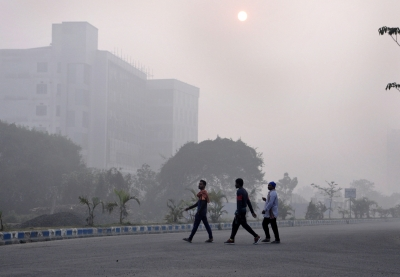
New Delhi, Dec 30 (IANS) The Asia-Pacific (APAC) region is seeing a rise in interest in cultured meat or lab-grown meat, according to a report on Monday.
Meat is an essential source of proteins, lipids, carbohydrates, and vitamins that the human body needs to meet its energy requirements.
Even as traditional animal farming techniques are becoming insufficient to meet the growing demand, cultivated meat has become a powerful protein substitute, said the report by GlobalData, a data and analytics company.
“APAC nations are exploring opportunities to produce cultured meat driven by technological advancements and growing consumer awareness of sustainable practices,” said Bynagari Susmitha, Consumer Analyst at Global Data.
This comes as the traditional method of raising livestock has been shown to raise serious environmental problems like an increase in greenhouse gas emissions, scarcity of water, and overuse of land resources.
“It is believed that about three-quarters of agricultural land is used for animal husbandry, leaving very little space available for grain cultivation. Furthermore, meat production is responsible for a significant amount of greenhouse gas emissions from the food industry. Cultivated meat, also known as lab-grown meat, is sustainable as it has less environmental impact,” Susmitha said.
The report also pointed out a “clear shift in consumer preferences towards alternative protein sources”. This, Susmitha said, is leading to greater acceptance and adoption of cultured meat products.”
Susmitha noted Singapore as the prime example of this cultural shift.
The country has used cultured meats to adapt to novel foods. And “it sees an opportunity to become a global leader by assisting both domestic and foreign businesses”, Susmitha said.
Further, the report cited GlobalData’s Q3 Consumer Survey of Asia and Australasia, which showed that 81 per cent of the 6,163 respondents focus on sustainable/environmentally friendly features when deciding to make a food and drink purchase.
“As the world fights the urgent need to address climate change, cultured meat or lab-grown meat minimises greenhouse gas emissions associated with conventional meat production, promotes ethical animal care, and also meets the growing need for food that is high in protein,” Susmitha said.
The report projected an increase in investments and legislation for cultured meat technologies as countries in the APAC region aim to achieve their food security and sustainability objectives.
“This will foster a competitive market environment and drive scientific breakthroughs in the region,” Susmitha said.
–IANS
rvt/




